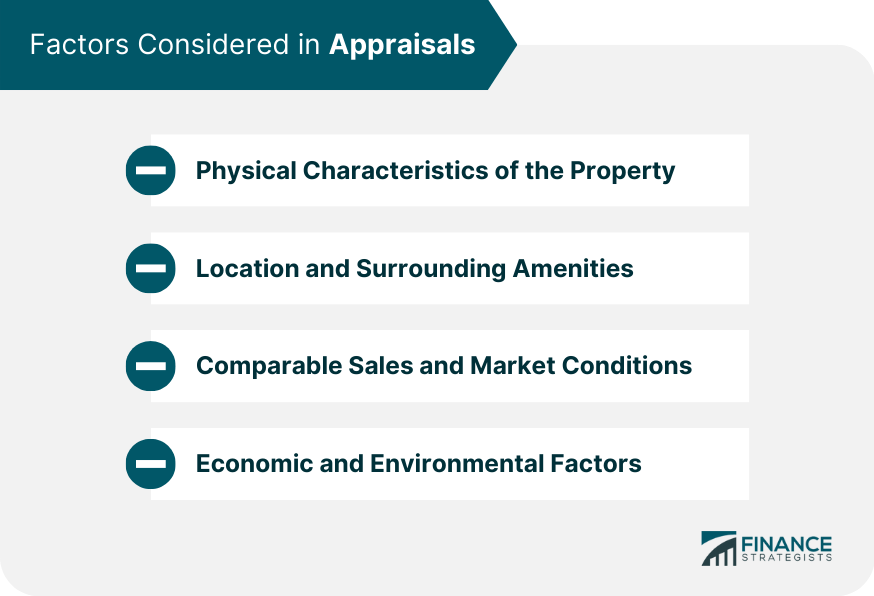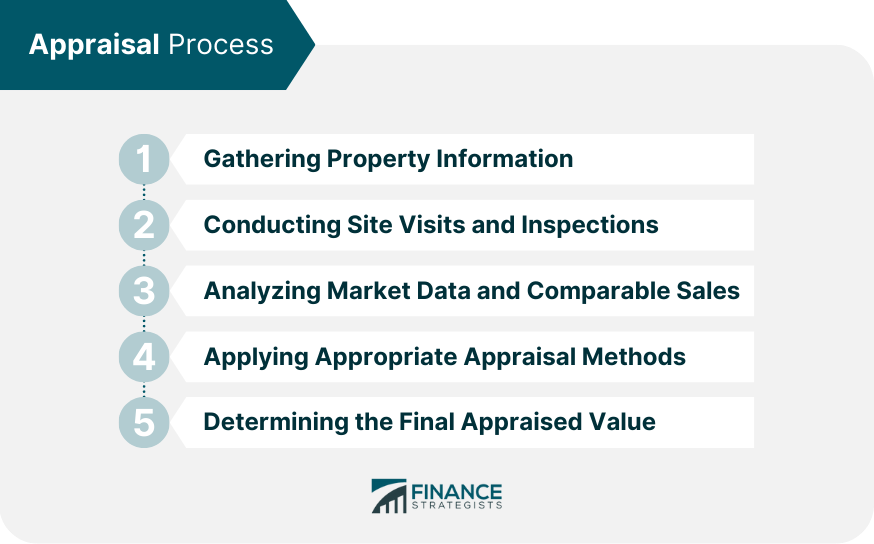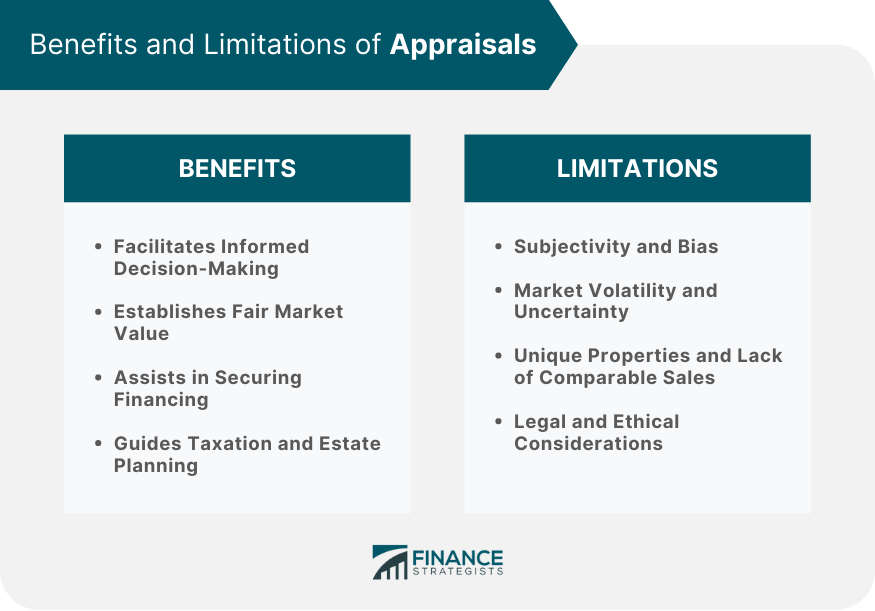An appraisal is a professional and objective estimate of the market value of a property, conducted by a certified appraiser. This impartial opinion forms the foundation of numerous financial transactions, involving a home or commercial property, safeguarding the interests of buyers, sellers, and lenders alike. Appraisals carry weight in the real estate industry, playing a pivotal role in several key areas. Not only do they determine the potential selling price of a property, but they also affect the loan amount a lender may provide for a mortgage. In essence, an accurate appraisal can make or break a real estate deal, highlighting the monetary worth of a property, and lending credibility to transactions. One of the fundamental objectives of an appraisal is to determine the market value of a property. Market value, also known as fair market value, is the estimated amount for which a property would trade on the date of valuation between a willing buyer and a willing seller. This valuation provides a solid reference point for various stakeholders, including buyers, sellers, lenders, and investors. When it comes to borrowing funds for purchasing a property, appraisals prove indispensable. Banks and other lending institutions rely on appraisals to gauge the value of a property before approving a loan. This valuation ensures that the amount lent does not exceed the worth of the property, thereby safeguarding the lender’s investment. In the realm of estate planning and taxation, appraisals are integral. For estate planning, they help in understanding the value of a property, thereby guiding the division of assets among heirs. As for taxation, property tax assessments often hinge upon the appraised value of a property, ensuring a fair taxation process. Appraisals are powerful tools in real estate negotiations. For sellers, an appraisal can justify the asking price, providing evidence of the property's value. On the flip side, buyers can leverage a lower appraisal to negotiate a reduced purchase price. In essence, an appraisal offers a neutral, authoritative voice in negotiations, balancing the scales between buyer and seller interests. When conducting an appraisal, the physical attributes of a property take center stage. These may include its size, design, layout, number of rooms, and overall condition. Other structural elements, such as the foundation, roof, and other building materials, are also taken into account. These physical features collectively influence the property's worth. Geographical location weighs heavily on a property's value. An appraiser considers the quality of the neighborhood, proximity to amenities such as schools, parks, shopping centers, and transport links, as well as potential nuisances or detriments in the surrounding area. The desirability of the location can significantly impact a property's market value. Comparable sales, or "comps," form a critical part of the appraisal process. Appraisers analyze recent sales of similar properties in the same area to draw comparisons. The prices at which these properties have sold provide valuable insights into the current market conditions and help establish a realistic value for the property being appraised. Beyond the property's characteristics and its immediate surroundings, larger economic and environmental factors also play a part in an appraisal. For example, the general state of the economy, interest rates, and housing market trends can influence a property's value. In addition, environmental considerations, such as flood zones or other geographical hazards, may also impact the appraisal. The appraisal process kicks off with the gathering of relevant property information. This could involve studying the property's history, reviewing public records for ownership and zoning details, and scrutinizing the architectural plans. Information about the neighborhood, local amenities, and prevailing market trends also forms part of this stage. After data collection, the appraiser visits the property to conduct a thorough inspection. This on-site visit allows the appraiser to assess the property's condition, size, layout, and other physical features firsthand. The appraiser also takes note of any unique or outstanding attributes that might impact the property's value. Armed with firsthand information and preliminary data, the appraiser turns to analyze market data and comparable sales. They scrutinize recent sales of similar properties within the same locality, taking into account differences in features, conditions, and locations. This analysis gives them a clear understanding of the current market conditions and a realistic value for the property. To calculate the property's value, the appraiser uses one or more appraisal methods. These might include the sales comparison approach (comparing the property to similar ones recently sold). They could also use the cost approach (determining what it would cost to replace the property), and the income approach (for income-generating properties, based on potential income). In turn, the chosen approach depends on the property type and the purpose of the appraisal. After a thorough analysis, the appraiser arrives at a final appraised value. This figure represents the appraiser's informed opinion of the property's market value, backed by comprehensive research, rigorous analysis, and professional expertise. This appraisal value forms the basis of real estate transactions, property taxation, and legal matters. Among the various types of appraisal reports, a summary appraisal report is the most common. It offers a comprehensive overview of the appraisal process, detailing the data considered, methods applied, and justifying the final value concluded. Though extensive, it maintains a balance between detail and brevity, providing sufficient information for most typical real estate transactions. At the more detailed end of the spectrum lies the self-contained appraisal report. This type of report leaves no stone unturned, providing exhaustive details of every aspect of the appraisal process. While its length and complexity might seem excessive for regular transactions, it proves beneficial in complex scenarios, such as litigation or disputes, where every detail might count. Restricted use appraisal reports stand at the opposite end from self-contained reports in terms of detail. They are succinct, providing minimal information about the appraisal process, and are intended for the client's use only. These reports typically suffice when the client doesn't need a deep understanding of the appraisal details but requires a legitimate value estimation. Appraisals are vital decision-making tools in the real estate arena. By establishing a property's market value, they guide stakeholders – buyers, sellers, lenders, or investors – to make informed decisions. Whether it's deciding on a property's asking price, negotiating a deal, or determining a loan amount, an appraisal provides the necessary factual groundwork. Another significant benefit of appraisals lies in their role in establishing fair market value. This neutral, authoritative evaluation provides a realistic picture of what a property is worth in the current market, leveling the playing field for all parties involved. It ensures that the seller gets a fair price and the buyer doesn't overpay. Appraisals prove instrumental in the loan approval process. By appraising a property, lenders get a clear sense of the property's worth, which in turn determines the loan amount they can offer. This valuation safeguards the lender's interests, ensuring that the loan amount doesn't exceed the property's market value. Appraisals play a crucial role in taxation and estate planning. They guide the assessment of property taxes, ensuring fair and equitable taxation based on the property's value. Similarly, in estate planning, appraisals help to value the estate, facilitating fair and appropriate distribution of assets. Despite their importance, appraisals are not without challenges. One major limitation is the element of subjectivity. Although appraisers strive for objectivity and rely on concrete data, their evaluations can still be influenced by personal bias or judgment, which may impact the final appraisal value. Appraisals are also susceptible to the vagaries of the real estate market. Market conditions can change rapidly, which might lead to appraisals quickly becoming outdated. This volatility and uncertainty can make it challenging to accurately determine a property's value at any given time. Appraising unique properties presents another challenge. When there are few or no comparable sales, determining a fair market value becomes more complex. In such cases, appraisers must rely heavily on their expertise and other appraisal methods, which can introduce additional uncertainty into the valuation process. Legal and ethical issues can also pose challenges in appraisals. For instance, there are strict laws governing appraisals, and failure to comply can result in legal consequences. Ethical considerations also play a part, as appraisers must maintain impartiality and avoid conflicts of interest to ensure a fair and accurate valuation. An appraisal is an objective evaluation of a property's market value. Performed by a certified appraiser, it plays a central role in various real estate transactions, providing a factual foundation for decision-making. The appraisal process considers numerous factors, including the property's physical characteristics, location, surrounding amenities, comparable sales, and prevailing market conditions. Appraisal in real estate provides several benefits, including helping buyers and sellers determine fair market value, ensuring that properties are priced accurately, and providing lenders with a reliable basis for determining loan amounts. However, challenges in real estate appraisal include the subjective nature of property valuation, potential discrepancies between appraisers' opinions, and the impact of market fluctuations on property values. Overall, appraisals provide an unbiased and professional opinion on a property's value, and are essential for making informed decisions in real estate transactions and ensuring fair and accurate valuations.What Is an Appraisal?
Purpose and Objectives of Appraisals
Determining Market Value
Assessing Property for Lending Purposes
Estate Planning and Taxation
Assisting Buyers and Sellers in Negotiations
Factors Considered in Appraisals
Physical Characteristics of the Property
Location and Surrounding Amenities
Comparable Sales and Market Conditions
Economic and Environmental Factors

Appraisal Process
Gathering Property Information
Conducting Site Visits and Inspections
Analyzing Market Data and Comparable Sales
Applying Appropriate Appraisal Methods
Determining the Final Appraised Value

Types of Appraisal Reports
Summary Appraisal Report
Self-Contained Appraisal Report
Restricted Use Appraisal Report
Benefits of Appraisals
Facilitates Informed Decision-Making
Establishes Fair Market Value
Assists in Securing Financing
Guides Taxation and Estate Planning
Challenges and Limitations of Appraisals
Subjectivity and Bias
Market Volatility and Uncertainty
Unique Properties and Lack of Comparable Sales
Legal and Ethical Considerations

The Bottom Line
Appraisal FAQs
The main purpose of an appraisal is to determine the market value of a property. This value provides a basis for various financial transactions, such as selling, buying, or securing a mortgage loan.
Typically, the buyer pays for the appraisal as part of the closing costs. However, this can sometimes be negotiated and could be covered by the seller.
Yes, an appraisal can affect the selling price of a property. If the appraisal comes in lower than the agreed-upon price, it might lead to renegotiations or even cause the deal to fall through.
While there are no specific statistics, appraisals can sometimes come in low. This is usually due to rapidly changing market conditions, unique property characteristics, or a lack of comparable sales.
Yes, if you believe an appraisal is incorrect or unjustly low, you can dispute it. You would need to provide evidence to support your claim, such as recent sales of comparable properties that the appraiser may have missed.
True Tamplin is a published author, public speaker, CEO of UpDigital, and founder of Finance Strategists.
True is a Certified Educator in Personal Finance (CEPF®), author of The Handy Financial Ratios Guide, a member of the Society for Advancing Business Editing and Writing, contributes to his financial education site, Finance Strategists, and has spoken to various financial communities such as the CFA Institute, as well as university students like his Alma mater, Biola University, where he received a bachelor of science in business and data analytics.
To learn more about True, visit his personal website or view his author profiles on Amazon, Nasdaq and Forbes.











